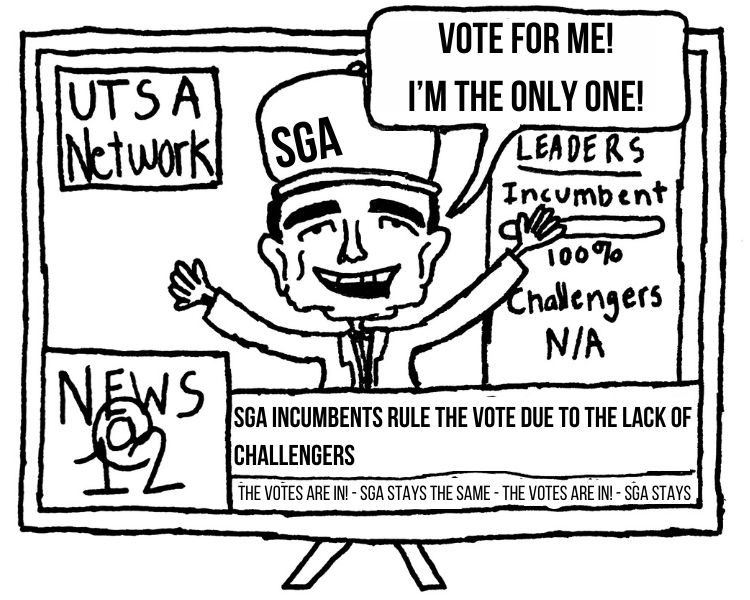A few years ago, BuzzFeed compiled a list of the most favored literature among the 44 U.S presidents. Some were profound and personal (I’m looking at you Obama, and your adoration for Toni Morrison’s Song of Solomon) and some were head-scratchers, notably those who favored their own autobiographies or that one response that shouldn’t feel like a throwaway, but does: the Bible.
Both George W. Bush and our recent president-elect have claimed the Bible as their favorite books. What made the list more interesting was to compare it with the Washington Post’s 2015 ranking of the U.S. presidents from best to worst, according to the surveyed 162 members of the American Political Science Association. The top three came as no real surprise: Abraham Lincoln, George Washington, and Franklin D. Roosevelt. To then go back to BuzzFeed’s list provided beautiful insight into the literature that influenced and inspired our greatest presidents. Good readers make good presidents, and with our nation currently in flux, it might help if the American people and president-elect consider opening the books that shaped great men.
William Shakespeare is incredibly popular amongst past presidents, particularly Abraham Lincoln.
In his letter of 17 August 1863, Lincoln told the actor James H. Hackett: “Some of Shakespeare’s plays I have never read, whilst others I have gone over perhaps as frequently as any unprofessional reader. Among the latter are ‘Lear,’ ‘Richard III,’ ‘Henry VIII,’ ‘Hamlet,’ and especially ‘Macbeth.’ I think nothing equals ‘Macbeth.’” Michael Bishop, founding Executive Director of the Lincoln Bicentennial Commission, notes in a podcast for the Folger Shakespeare Library how Lincoln was well-versed in Shakespeare’s texts long before his legal or political career. Even though Lincoln grew up in rural isolation, one of his primary sources of education and literacy development was reading Shakespeare.
According to Bishop, “Both the works of Shakespeare and the King James Bible would commonly have been found in the homes of people living in rural America in the early nineteenth century.” So while familiarity with the Bard was not uncommon for common folk in the days of Abe, this no less indicates how integral Shakespeare was in molding our greatest president. As far as tangible evidence goes, various letters and speeches written by Lincoln invoke references to ‘Julius Caesar’ and more. Lincoln’s love of Shakespearean sonnets and soliloquies should not only be interpreted as a testament to the power of literature, but also a challenge to the notion that the pursuit of a literary life is a folly. Keep writing, you may just inspire our next great president.
George Washington, father of our nation, loved the 1713 play ‘Cato, a Tragedy’ by Joseph Addison. While the play is about a Roman politician’s plan to prevent Julius Caesar’s rise to emperor, it is the themes of stoicism, virtue, and liberty that resonated with Washington and many who ran in similar intellectual circles. He loved the play so much he had it performed for his men at Valley Forge.
Perhaps the best explanation of Washington’s love of ‘Cato’ comes from historian Gordon S. Wood: “(Washington) incorporated its lines into his correspondence. The play, very much an Enlightenment tract, helped to teach him what it meant to be liberal and virtuous, what it meant to be a stoical classics hero . . . Washington’s Enlightenment was a more down-to-earth affair, concerned with social behavior and living in the everyday world of the people. His Enlightenment involved civility.” With our nation in such desperate need of civility today, perhaps it would behoove all of us to assume our first president had good taste in literature, and give this play a shot.
The Franklin D. Roosevelt Presidential Library and Museum list his favorite authors as Charles Dickens, Mark Twain, and Rudyard Kipling. However, the general consensus seems to be Kipling as #1 for FDR. His favorite poem is listed as “If” by Kipling, which I had not read before researching for this column. It’s strange how un-coincidental coincidences can be. It’s strange to feel like in this time of seeming-chaos and uncertainty, there are little moments where something in the air holds my hand and guides my fingers on the keys toward a revelation as stirring as a poem.
There are a few disconcerting elements of Kipling’s (oh, the white man’s burden), but “If” challenges us to rise above the hate and the hullabaloo. It challenged FDR to be great, and do great things. It challenges us to be great. It challenges Trump to be great. “If you can keep your head when all about you/Are losing theirs and blaming it on you,” then perhaps you can lead as a light out of darkness. That seems to be an inherent part of the job Trump is now set to fill. If he can quiet the chaos with virtuous humility and heart, then perhaps together we can be “great again.” I just really hope he’s a reader.











